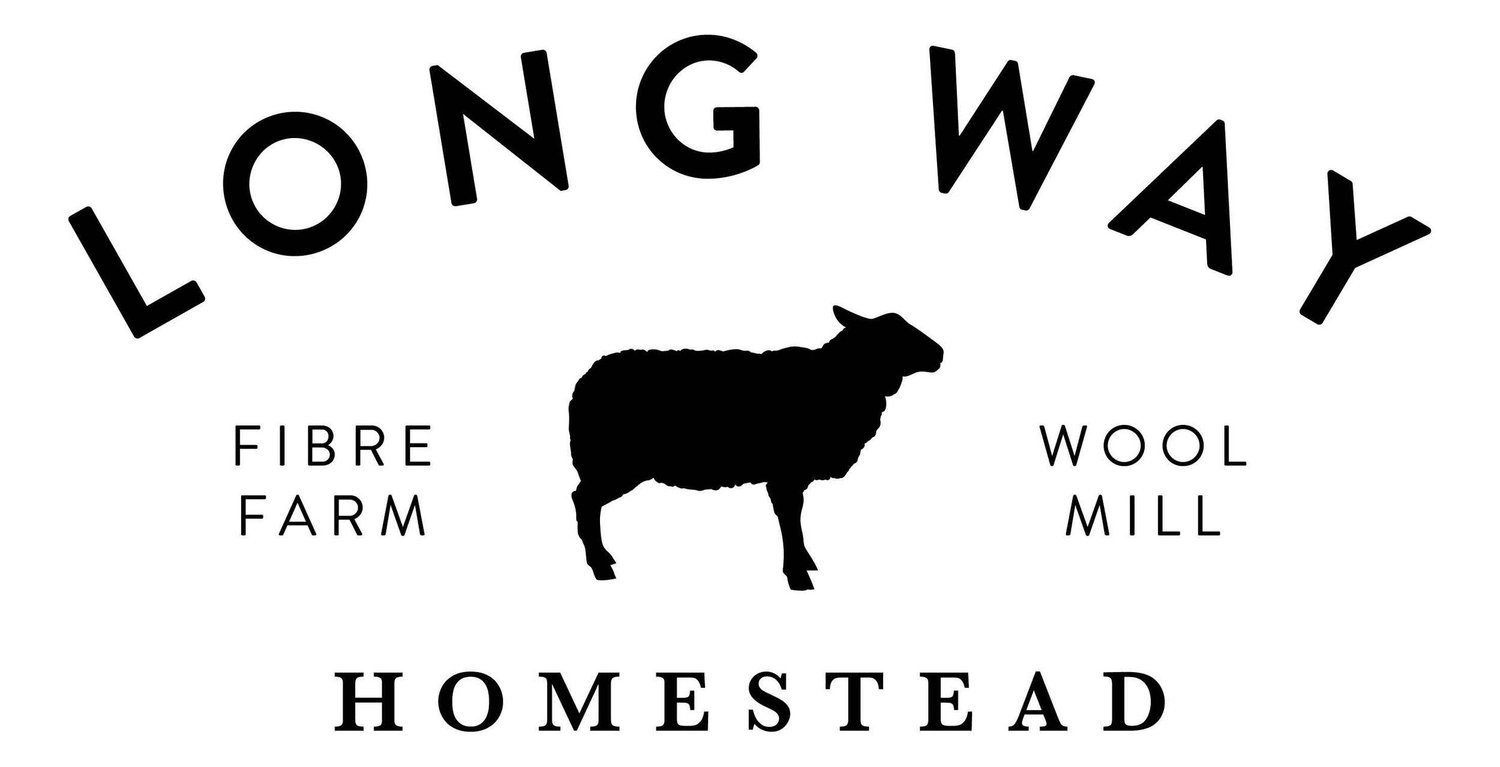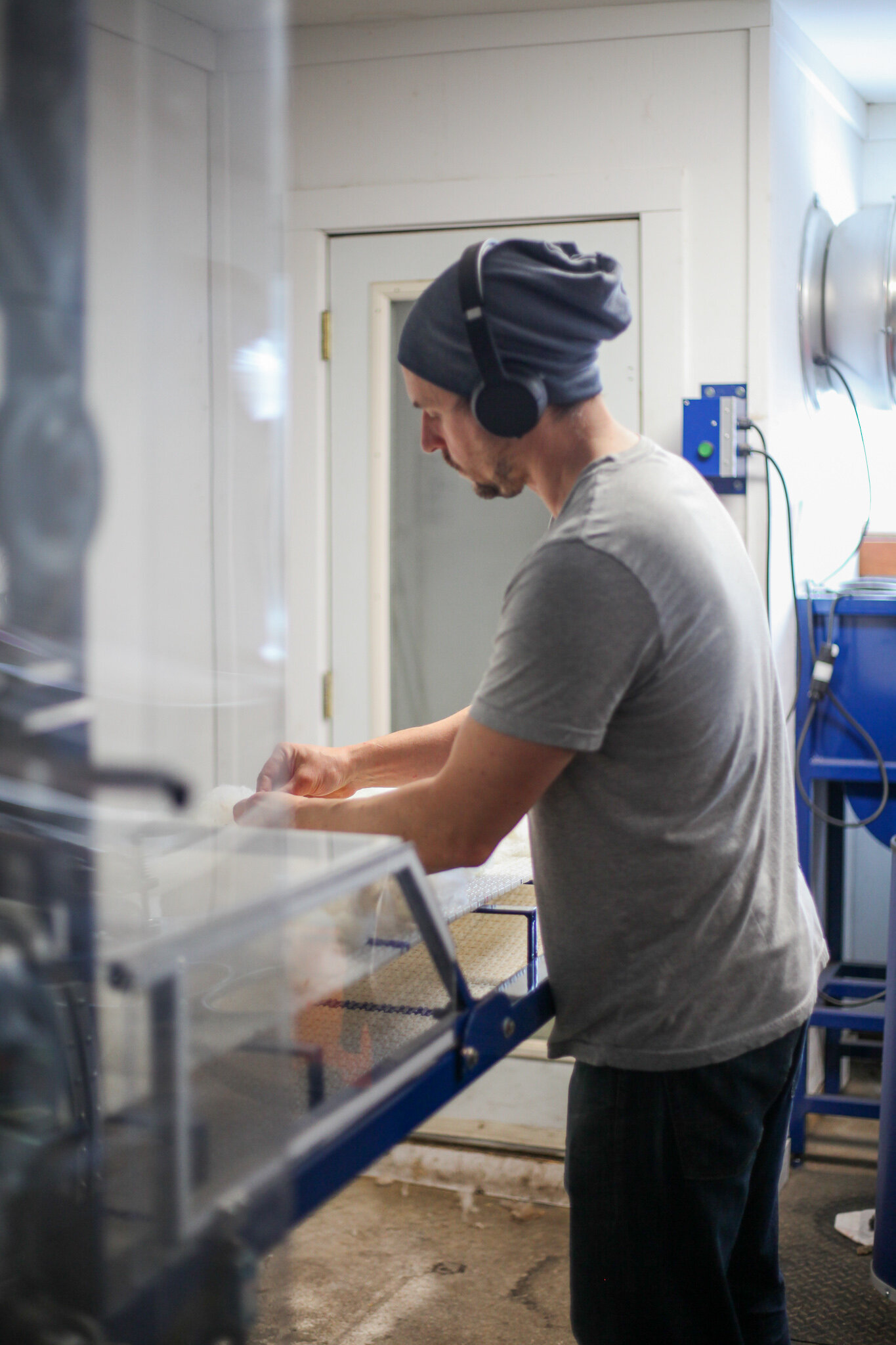Traceability & Transparency at LWH
It can be challenging to make ethical decisions in the products that we consume when there are so many options and so little time to adequately research the businesses that are tripping over themselves for our dollars. At LWH we are trying to contribute to a community where transparency and traceability of our products is readily available. We hope to share the details of our processes with you - but also to push other wool and textile related businesses to do that same.
Traceability
Connection to the source of our materials is a core value at Long Way Homestead. Being transparent with our customers about the process involved from sheep to yarn to waste is a priority.
We work with local Canadian farmers to ensure a high quality end product, but also to ensure the highest standards of animal welfare, land management and labour standards are being met.
We source the majority of our wool from Manitoba farms and some from outside of the Province. We prioritize purchasing wool from farms that focus on regenerative land management, and we visit all the farms at least initially to ensure we can stand behind the standards of animal welfare.
We transport the wool ourselves, or in partnership with sheep & wool livestock hauling trucks. We try and minimize greenhouse gas emissions through batch shipping our wool from regions or utilizing back-haul trucking opportunities.
The wool is then scoured at Baintons in Ontario, or in our own mill in Ste. Genevieve. Our water comes from the Basal Winnipeg aquifer and our mill effluent water is spread out on our own sheep pastures through a septic system. We use a biodegradable scouring agent and we ensure that the effluent water we use as irrigation is not harming plants, soil or animals.
After the wool is scoured we do all the processing in our mill on our farm. We run Belfast Mini Mill equipment - for a full description of the process you can check it out here. Luke and I are the primary employees of the mill and we have had a few part-time employees that also work in the mill with the machinery and/or help with shipping, dyeing and finishing. We pay a Manitoba living wage to our employees and constantly work to make the workplace environment supportive and also a place of meaningful enriching work.
Natural Dyeing
We use only natural dyes in all our processing. We grow around 80% of the dyes we use and the rest we source from MAIWA supply store.
We use water from our own aquifer and we recycle both our mordant and dye baths as much as we can without compromising wash/light fast of the yarn.
We dispose of the used wastewater and dye materials (plants, flowers etc) within our farm composting system.
Waste Management at Long Way Homestead
The waste we produce in our business and what we do with it is an important part of transparency. We have spent some time looking at ways we could just reduce the single-use products in our processing (this almost exclusively happens at the packaging/shipping stage of the business and is still a gut-punch every month).`
When we evaluated the wool mill we realized there were some big areas that we were producing ‘waste’
dirty waste wool from skirting (the bits we can’t turn into yarn)
clean waste wool from our carding machine
Spun yarn at the end of our bobbins and cones
Turns out this ‘waste’ is not really waste - but just underutilized resources from our business. How can we transform this ‘waste’ into something valuable and re-useable. Here is what we do with waste on our farm:
Dirty wool that cannot be scoured and processed is turned into wool pellets (soil ammendment for your garden)
Waste clean wool is repurposed either as stuffing for our floor pillows, or sold as stuffing for crafters.
Small amounts of yarn leftover on bobbins is wound and used in crafting kits.
All our on-farm manure and natural dye waste is composted and integrated back into our landbase.
Our vacuum sealing bags are a compostable corn-based bag (and sadly single use).
We try to use paper based products in all our other shipping and packaging and work hard to avoid the single-use plastic bags in most of our products (except sleeping pillows).
We are constantly working to make things better and welcome ideas or suggestions on how to manage waste in our business and on our farm.






